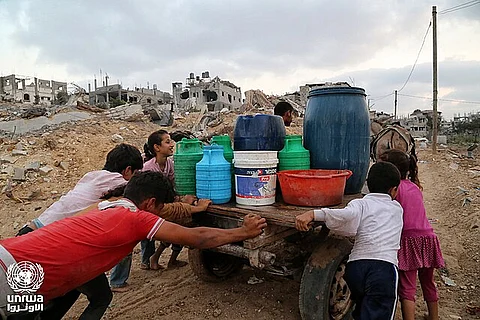

Across Gaza, families spend hours each day searching for water, hauling heavy containers across rubble-strewn landscapes just to secure a few liters. Moaz Mukhaimar, 23, queues for two hours three times daily to collect water for his family of 20 in Deir al-Balah. "How long will we stay like this?" he asks, dragging brackish water for cleaning and marginally cleaner water for drinking in scorching heat.
The average Gazan survives on 3–5 liters of water daily, far below the UN’s 15-liter emergency minimum for basic survival. Most water comes from polluted wells contaminated by sewage and chemicals, accelerating outbreaks of diarrhea, hepatitis, and dehydration. Preventable waterborne diseases have surged by nearly 150% in three months, with acute jaundice cases doubling and bloody diarrhea tripling.
Children have become "carriers of plastic containers," losing their childhoods to the daily struggle for water, says Munther Salem of Gaza’s Water Authority. Mothers like Umm Moaz ration meticulously: "The children keep wanting to drink. Who knows if tomorrow we’ll fill up again?" Infants die from dehydration and infections as hospitals collapse, and premature births have risen by 30% due to trauma and malnutrition.
Despite Israeli claims of operating two water pipelines, Palestinian officials say they remain non-functional. A UAE-funded pipeline to bring desalinated water from Egypt to 600,000 Gazans is underway but weeks from completion. Meanwhile, Israel restricts fuel needed for pumps and generators, while 420,000 pallets of aid, including water purification kits sit stranded in warehouses.
UNICEF warns dehydration and starvation are now "frontline effects" of the conflict. Oxfam stresses only a ceasefire and unrestricted aid access can reverse the crisis: "Otherwise, we’ll see people dying from preventable diseases, already happening before our eyes".